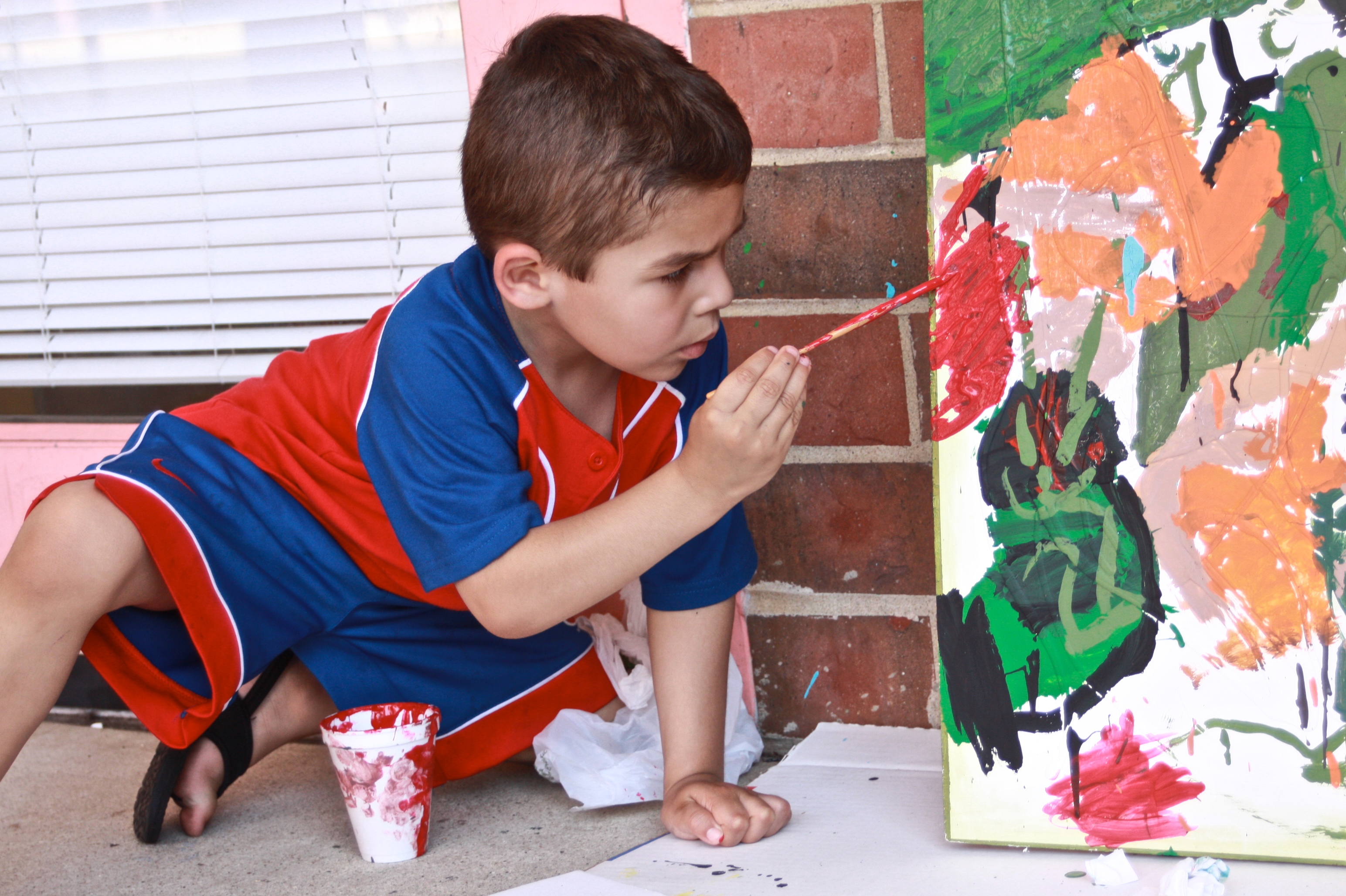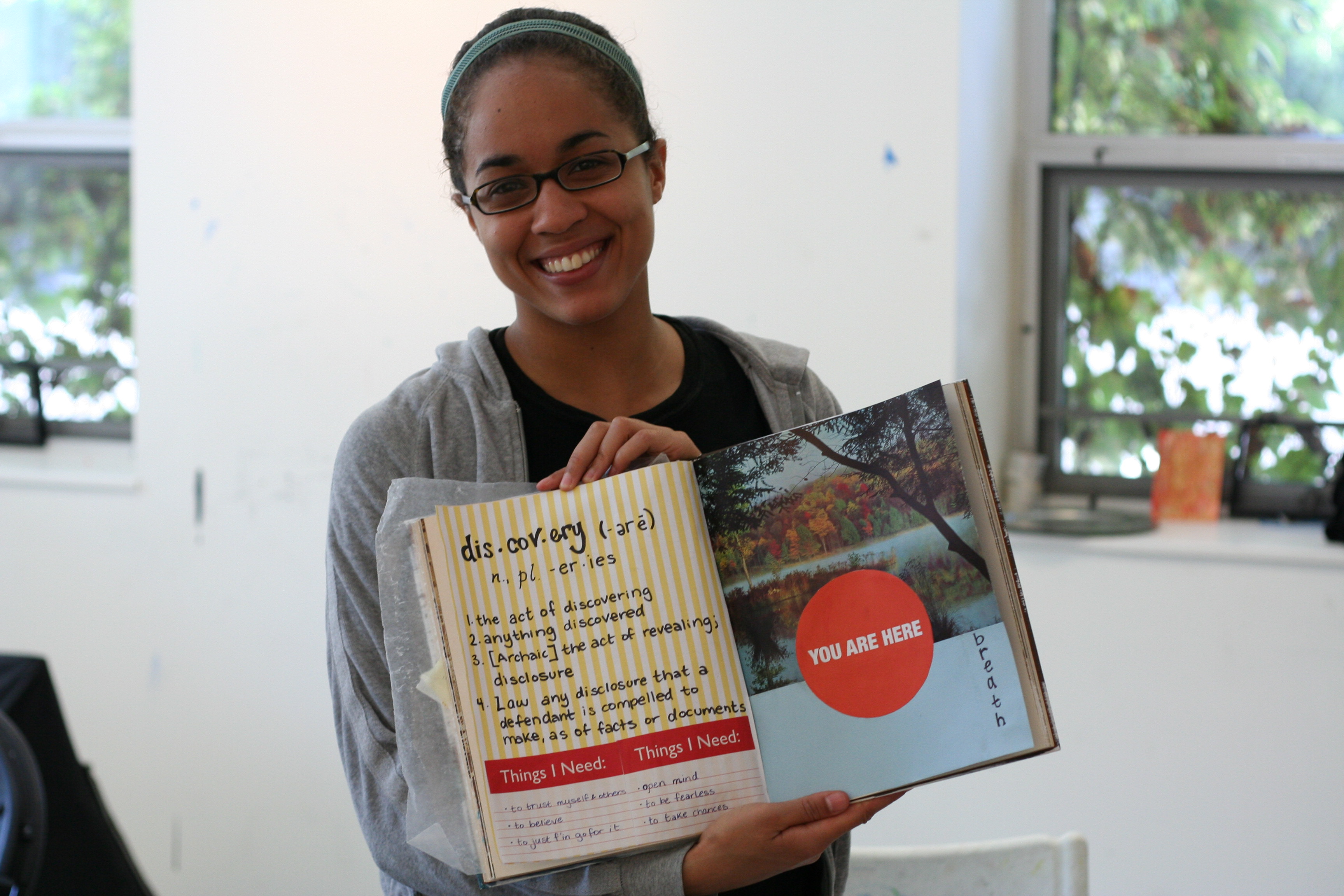This blog was written by Urban Gateways Executive Director Eric Delli Bovi (pictured below right) and was originally published on ARTSblog by Americans for the Arts. See the original post here.

“If at first you don’t succeed, try, try again” is a common refrain for describing the world’s most successful people and history’s most brilliant ideas and discoveries. Perseverance in the face of adversity can lead to major breakthroughs. Unfortunately in our hyperactive, high-stakes world of standardized testing, making time in the classroom for discovery, revision, and reflection without fear of judgment is now considered an unaffordable luxury.
The NEA’s recently published The Art of Failure: The Importance of Risk and Experimentation, is a great reminder that the arts provide the space where making mistakes is a critical part of the creative process. The interviews with artists, entrepreneurs, and critics highlighting their experiences with failure and how those experiences have contributed to ultimate success helps build the case for fostering this attitude within young learners early and often.
In this NEA Arts publication, award-winning playwright Carlos Murillo describes the transformative power of failure this way: “I think you can either be crushed by failure and do something else, or allow it to make you more resilient.” Resiliency is a highly-prized American trait that is accredited with our nation’s greatest individual and collective achievements. Nurturing a more positive attitude towards risk and failure is essential to enabling success; process-driven learning through the arts is the perfect vehicle for fostering that attitude and for building tomorrow’s innovators.
 Product over process now dominates our approach to education, which is counter-intuitive to the universal understanding of how great breakthroughs are made. Through process-driven arts education, risk and experimentation enable students to develop the skills needed to overcome short-term defeat in order to achieve a greater sense of their own artistic, academic, and personal potential.
Product over process now dominates our approach to education, which is counter-intuitive to the universal understanding of how great breakthroughs are made. Through process-driven arts education, risk and experimentation enable students to develop the skills needed to overcome short-term defeat in order to achieve a greater sense of their own artistic, academic, and personal potential.
The recent emphasis on integrating the arts into science, technology, engineering, and math (STEM to STEAM) provides us with a solid rationale for enabling students to develop the essential skill of individual persistence. Failure and retrial within STEM subjects are critical to the discovery process, which is why the arts are so beautifully aligned with the lessons of experimentation. Creating requires practice. Practice requires self-determination. Determination requires motivation.
Our educational system provides motivation predominantly through rewards and punishments in the form of grades and test scores. This form of motivation breeds a sense of risk-aversion that stifles the internal desire to lean into possible failure in search of discovery. Similarly, when we teach students that the most important thing is a smooth final performance or a “perfect” outcome in our approach to arts education, we are stunting their ability to learn from mistakes. Arts learning should allow and even encourage creative mistakes. Sometimes they turn out not to be mistakes at all. For the sake of our children’s success, let’s make failure an option.

